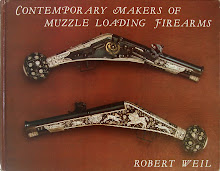The Battles of Saratoga (September 19 and October 7, 1777) marked the
climax of the Saratoga
campaign giving a decisive victory to the Americans over the British
in the American
Revolutionary War. British General John Burgoyne led a large
invasion army up the Champlain Valley from Canada, hoping to meet a similar
force marching northward from New York City; the southern force never arrived,
and Burgoyne was surrounded by American forces in upstate New York. Burgoyne
fought two small battles to break out. They took place eighteen days apart on
the same ground, 9 miles south of Saratoga, New York. They
both failed. Trapped by superior American forces, with no relief in sight,
Burgoyne surrendered his entire army on October 17. His surrender, says
historian Edmund Morgan,
"was a great turning point of the war, because it won for Americans the
foreign assistance which was the last element needed for victory.
John Burgoyne
On October 17,
following a ceremony in which Burgoyne gave his sword to Gates, only to have it
returned, Burgoyne's army (approaching 6,000 strong) marched out to surrender
their arms.
Portrait by Gilbert
Stuart, c.1794
General Horatio Gates
Daniel Morgan
Colonel Daniel Morgan and the
newly formed Provisional Rifle Corps, which comprised about 500 specially
selected riflemen from Pennsylvania,
Maryland, and Virginia, chosen for their
sharpshooting ability. This unit came to be known as Morgan's Riflemen.
A detachment of
Morgan's regiment, commanded by Morgan, was reassigned to the army's Northern Department and on
Aug. 30 he joined General Horatio Gates
to aid in resisting Burgoyne's
offensive. He is prominently depicted in the painting of the Surrender of
General Burgoyne at Saratoga by John Trumbull.
Copy and images from Wikipedia: Saratoga campaign here. John Burgoyne here. Horatio Gates here. Daniel Morgan here.































No comments:
Post a Comment
Note: Only a member of this blog may post a comment.